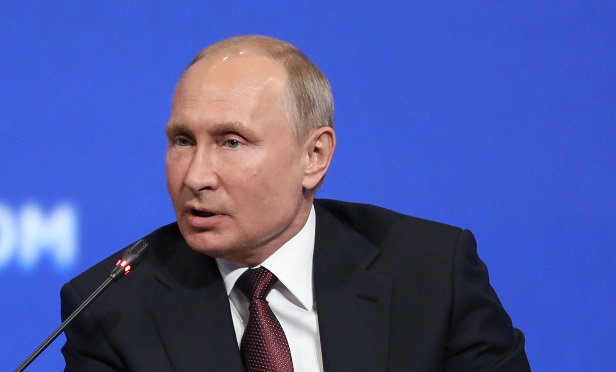
 Vladimir Putin (Photo: Andrey Rudakov)
Vladimir Putin (Photo: Andrey Rudakov)
Russia's attempt to roll out a proposal to increase the pension age under the cover of the World Cup has triggered the worst tumult President Vladimir Putin has faced at home in years, fueling speculation the Kremlin might soften a reform that's crucial to righting public finances.
A decade in the making but unveiled hours before the Russian national team's opening game at the soccer tournament last month, it came at a time when incomes stagnate and the economic outlook remains dim. The plan to push back the time people can retire starting next year quickly spilled into protests and a steep drop in Putin's poll ratings. Among the four parties in parliament, only the pro-Kremlin United Russia supported the legislation on Thursday.
Through it all, Putin kept mum in public, even though he approved the proposal before it went to parliament, according to two officials familiar with the deliberations. Authorities knew that the reform, while seen as inevitable, would be a tough sell, they said. But Putin's public silence amid the signs of popular opposition has sown uncertainty about the Kremlin's plans, even within the government, these people said, speaking on condition of anonymity to discuss confidential deliberations.
Lawmakers in Moscow approved the bill in first reading and also extended the period of deliberation by a month until Sept. 24. While that's leaving the ball in Putin's court, the president is only likely to speak up before regional elections in September, according to Evgeny Gontmakher, a former government official.
"A certain panic has set in among the government ranks— evidently they didn't expect such reaction," said Gontmakher, who's also a management board member at Moscow's Institute of Contemporary Development. "I don't rule out some watering down."
Despite reports of worry in the Kremlin, Russia's government has tried to stay on message. Finance Minister Anton Siluanov has insisted there will be no change to the parameters of the overhaul.
But in a sign of a rift among lawmakers, 104 members of the lower house of parliament opposed the bill on Thursday, with 328 votes in favor. Several United Russia lawmakers were absent for reasons ranging from health problems to travel, and one cast a ballot against, according to the Vedomosti daily.
The proposal has rankled Russians because life expectancy remains so low that it would allow for too few years of retirement. Life expectancy is currently under 68 for men and below 78 for women. Meanwhile, poor job prospects could leave many older people unemployed.



